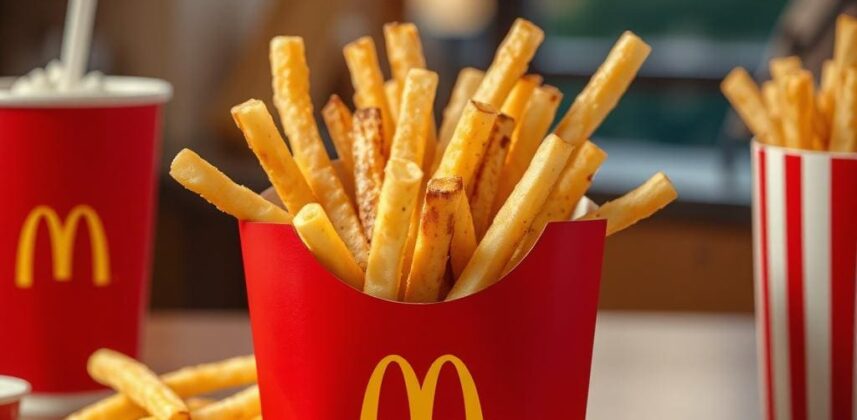GLP-1 weight loss impact on fast food: Wall Street warning or wake-up call?
Peter Paumgardhen | Last update: 13th June 2025
Wall Street just blinked. Three analyst downgrades in as many days — and McDonald’s shares are wobbling. But this isn’t just about French fries or price hikes. The big surprise? GLP-1 weight loss drugs are now cited as a growing threat to fast food sales. If you’re already taking Wegovy or Mounjaro, this might not come as a shock. But to the markets, it’s a wake-up call.

TL;DR – Key Takeaways
-
GLP-1 weight loss impact on fast food: Wall Street analysts say GLP-1 users are eating out less, and this is starting to affect big brands like McDonald’s and Pepsi.
-
Appetite suppression, portion control, and healthier habits are reshaping what people buy.
-
SlimrChat users have been ahead of this trend, with many reporting significant changes in food preferences and cravings.
-
Join the conversation: How has your eating changed since starting GLP-1s?
McDonald’s downgraded — and weight loss drugs are part of the story
In a move that raised eyebrows, analyst firm Redburn Atlantic downgraded McDonald’s from “Buy” to “Sell”. Their reasoning? It’s not just a rough sales quarter — it’s the growing influence of GLP-1 weight loss drugs, like Wegovy and Mounjaro (read more).
They’re not alone. In just three days, McDonald’s received three separate downgrades. Redburn’s Chris Luyckx warned that the impact of weight loss drugs “could easily build to 10% or more over time”. That’s no small side effect.
Meanwhile, PepsiCo CEO Ramon Laguarta recently told investors that users of weight loss drugs are still drinking Pepsi, but “probably in a smaller portion.” He also said they’re “driving more consumption” of protein, fibre, and hydration products instead.
GLP-1 weight loss impact on fast food: Changing habits, not just changing numbers
What’s happening here isn’t just a quarterly dip in sales. It’s a shift in behaviour. People on GLP-1 treatments often report:
-
Feeling full faster
-
Less snacking and emotional eating
-
Cravings for high-fat or sugary foods are dropping off
-
A growing interest in lean protein, fibre-rich foods, and hydration
This isn’t just personal. It’s cultural. The “supersize me” era is being quietly replaced with smaller portions and more mindful choices, and brands that built their empires on big appetites are beginning to feel it.
The SlimrChat community saw this coming
If you’ve been active in the SlimrChat Forums, none of this will feel surprising. Users have shared stories about their taste buds changing, old cravings fading, and takeout menus suddenly feeling less tempting.
One member wrote,
“I used to live on drive-thru meals. Now I can’t even finish a small portion — and weirdly, I don’t miss it.”
Others talk about starting to cook at home, drinking more water, or even craving fruit over fried food. It’s not a diet — it’s a quiet transformation.
We built SlimrChat to explore exactly this. The hidden, unexpected shifts that go beyond the number on the scale. And now, Wall Street is starting to notice what we’ve seen all along: weight loss isn’t just physical — it’s behavioural.
Has your appetite changed too?
Whether you’re still in the early weeks or months into your journey, we want to hear from you. Has your relationship with food changed since starting weight loss treatment? Are you spending less on fast food or fizzy drinks?
Share your thoughts and see what others are experiencing in the SlimrChat Forums.